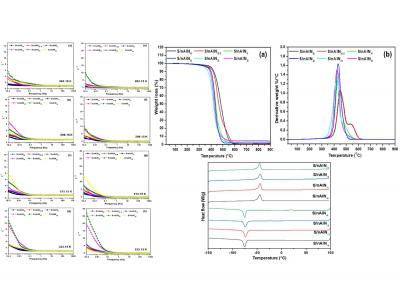Datasets & Competitions

This data set gives information on the TGA and FTIR analysis of neat nano mica fillers, before and after surface salination with HMDS. This is used to gain information regarding the successful surface hydrophobic salination of nano mica platelets. The reduction in hydroxyl group density as visualized in FTIR gives insight on the stripping of polar hydrophilic hydroxyl groups. Similarly, the use of TGA analysis helps in further ascertaining the successful surface salination treatments. This can be obtained by observing the change in residual mass.
- Categories:
 17 Views
17 ViewsThe study describes the use of nano aluminum nitride in developing thermally conductive but electrically insulative flexible materials for use in high-voltage insulation. The study begins with the detailed protocol for hydrophobic surface treatment of nanofillers for enhanced interaction with base silicone gum. TEM and XRD analysis are used to understand the shape, dimensions, and phase of the filler. XRD analysis revealed the coexistence of aluminum oxide in traces along with aluminum nitride.
- Categories:
 25 Views
25 Views